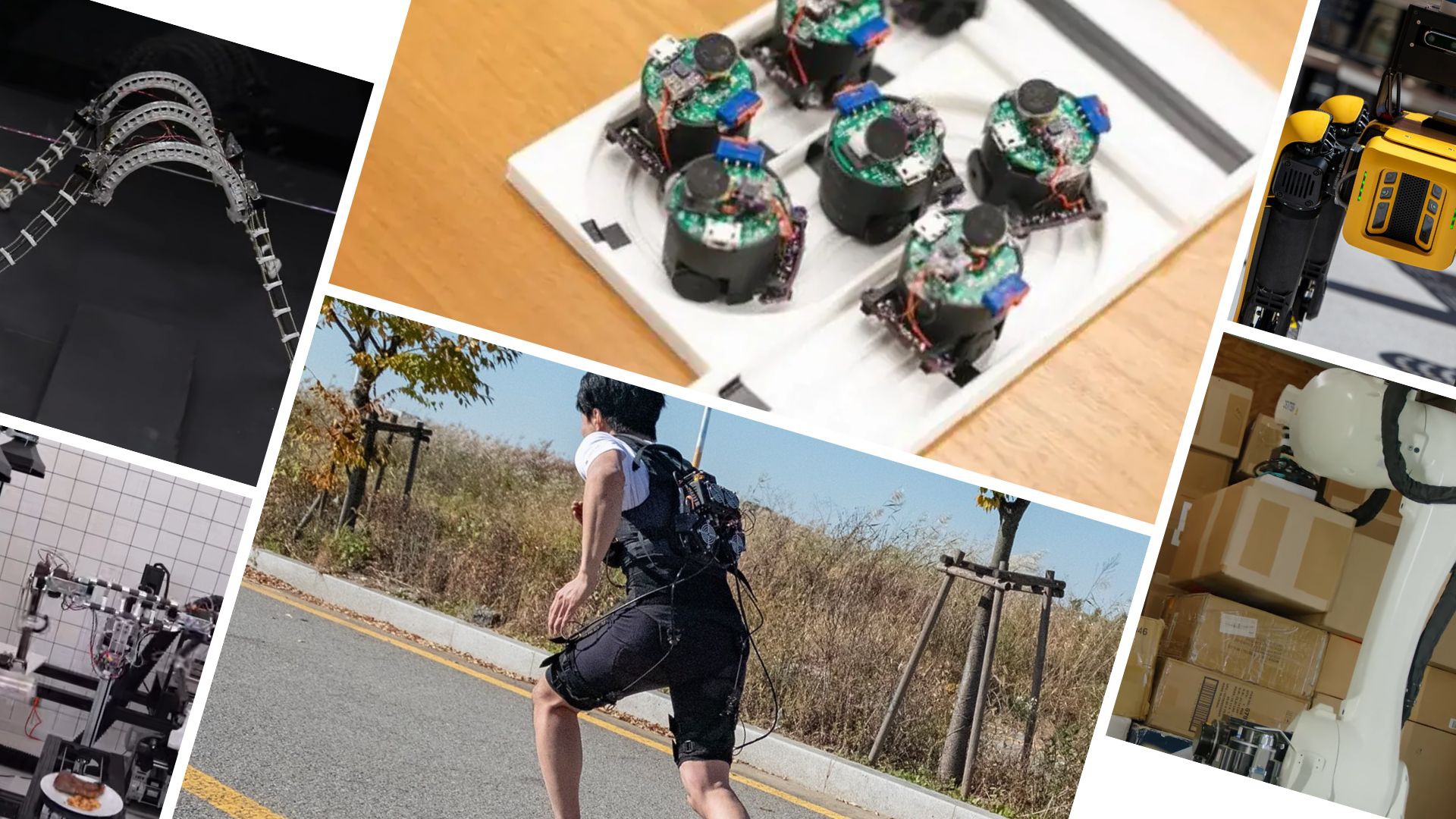Trending News in the Robotics Field for October 2023

What's happening in the robotics field for October 2023? Welcome to the 42nd installment in our monthly series, What's Trending in Robotics Field! We cover all the breaking news, hot issues, trending stories, and cool stuff that's happening — or has happened — in the robotics industry.
There were plenty of amazing things happening in the robotics industry throughout October. Let's see what caught our attention this month with the trending news in robotics for October 2023.
SKELETON CREW
Here’s something that will really supercharge your FitBit steps goals. Per The Technology Review, TechXPlore, and New Scientist, researchers have developed a robotic exoskeleton that can “supercharge” a runner’s time, enhancing a runner’s natural movements with technology. They’re even working on a new, customized version of the exoskeleton for an already-elite runner — and another version for a disabled runner to see if it would benefit them. Would you ever consider adding this type of exoskeleton to your daily jog? Or, would you like to see this type of technology added to competitive events?
HUSH HUSH, KEEP IT DOWN NOW, VOICES CARRY
Have you ever wanted to shush that noisy table next to you in a restaurant or a coffee shop? Or perhaps silence that annoying couple next to you in the movies? Well, robotics might have the answer to those sonic pains. According to Interesting Engineering, New Atlas, and the University of Washington website, researchers have developed “shape-shifting” speakers that can selectively mute conversations — allowing you to enjoy that chicken milanese or write your screenplay in relative peace. Where would you like to see this noise cancellation strategically deployed?
MIGHTY MORPHIN’ POWER ROBOT
Finally, something VERY cool from IEEE Spectrum (and again on YouTube). These “morphin” adaptive robots adjust their bodies to the terrain they face — shifting their compositions in order to better move through the different types of terrain on Earth (or, potentially, on any other worlds they might explore) just as biological organisms would adapt. It’s yet another example of robotics drawing inspiration from the evolution and adaptation of nature in order to advance to new heights — and help out humans along the way. Where could these robots explore?
Quick Hits
How about some “Quick Hits” from the month of October?
- From The Robot Report, take a look at these AI-powered robots loading up trucks for deliveries.
- On YouTube, check out the “Yori Project” cooking robot.
- Also on YouTube — soundwaves that propel a “microbot” through very narrow tubes.
- From Interesting Engineering: how Spot the robot dog is helping map radiation.
- New Atlas has the story of an amputee’s incredible robotic hand.
News From the Community
Finally, let’s take a look at one of the trending stories in the RobotShop community. For this one, we take a trip over to Scandanavia — more specifically, the country of Norway. There, Norway.no has the rather cool story of a robot that is scouring the nation for archeological treasures. There’s no digging involved; instead, it uses a powerful radar system to look into the earth for the traces of past civilizations. Not exactly what the last few Indiana Jones movies looked like, right?
What's to Come?
There is a lot of news out there, but these stories caught our eye this month. If we could give one big theme for the month, it would be “pet peeves.” So much of our technological advancements is driven by one simple question: how can we fix this little thing that is a hassle / is constantly annoying? If you’re old enough, think of the pain of going to the movies in an era before online ticketing and assigned seats — saving rows for friends, getting stuck in a poor location, facing sellouts, missing time getting concessions, etc.
Robotics offers an enormous boost in the war against these pet peeves. Think of how many little things have been improved through robotics and AI; just this month, for example, we see that robotics technology might finally solve the age-old problem of “Good heavens, this person next to us is talking LOUD.” It’s a relatively minor annoyance — but isn’t it nice that robotics and technology are there to pave over some of these everyday head-shakers?
The bottom line: robotics, as a whole, is on a roll. It applies to nearly every aspect of our lives and touches every element of our actions — from how we eat to where we will go as a species. Every month, it's a wonder to see where robotics has gone — and to imagine where the technology will go.
PICTURE CREDIT: Assistive and Rehabilitation Robotics Lab at Chung-Ang University / April Hong/University of Washington / ADAPTIVE ROBOTICS LAB / DEXTERITY AI / RoMeLa / Thor Swift/Berkeley Lab
Thanks for helping to keep our community civil!
This post is an advertisement, or vandalism. It is not useful or relevant to the current topic.
You flagged this as spam. Undo flag.Flag Post


